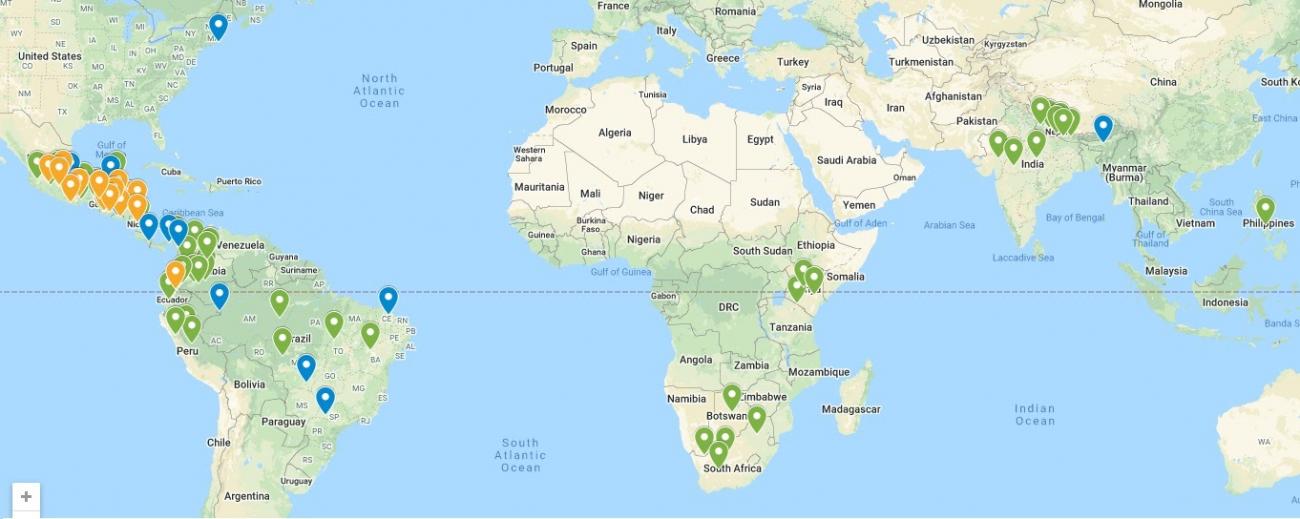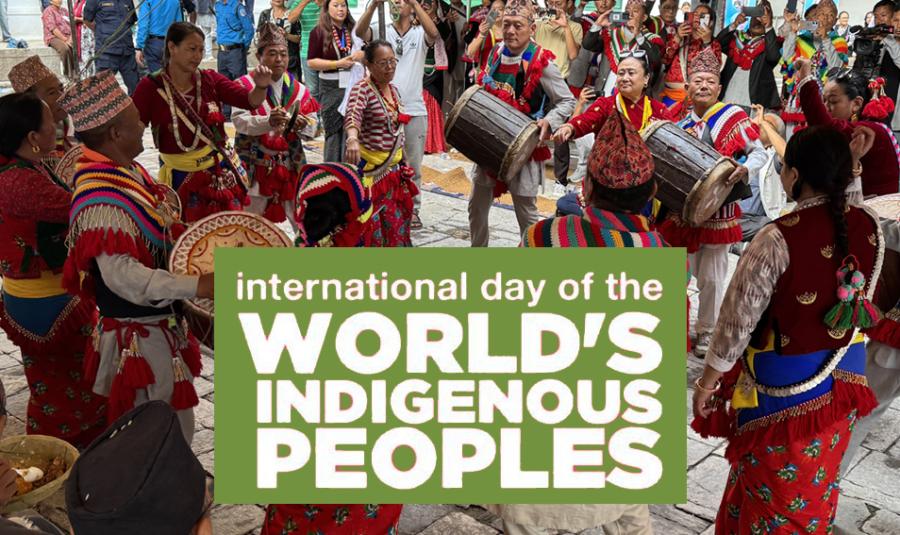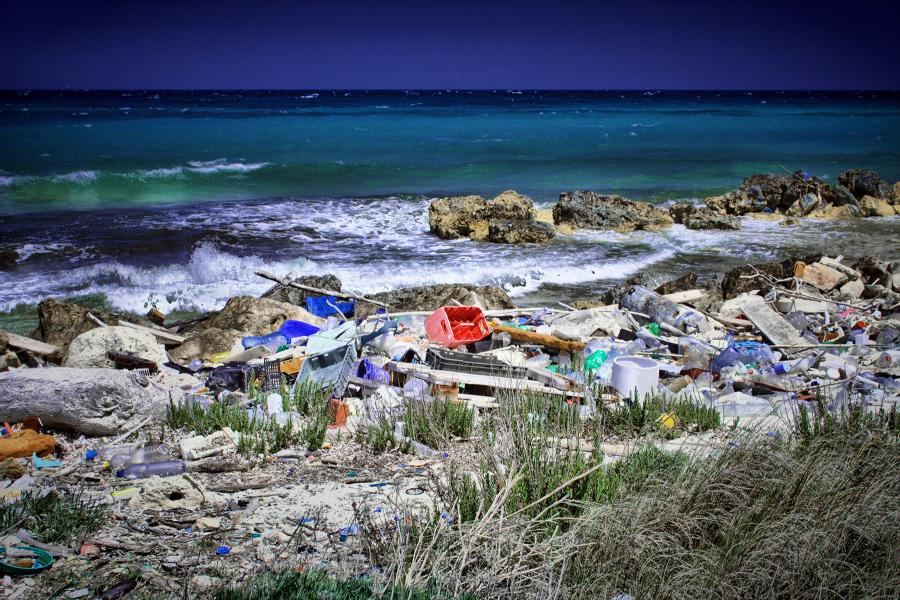
Map: Cultural Survival response to COVID-19 emergency in Indigenous communities.
COVID-19 is impacting Indigenous communities across the world. As in other contexts, communities already politically and economically marginalized experience some of the most devastating impacts of the virus as it disrupts food systems, overwhelms health facilities, disrupts people’s means of working and earning a living, and of course causes illness and death. Yet Indigenous communities are resilient, and, empowered with ancestral knowledge, organized communities, Indigenous languages, and their own forms of communication and media, they are taking action. As the UN Department of Social and Economic Affairs points out, it is paramount that Indigenous Peoples have access to culturally appropriate resources and information in their own languages. Indigenous communities themselves are best equipped to develop self-determined solutions.
Read more: 9 WAYS INDIGENOUS RIGHTS ARE AT RISK DURING THE COVID-19 CRISIS
Cultural Survival’s Keepers of the Earth Fund has launched an emergency grant-making process to provide small grants for some of these urgent, community-level projects. As of early May 2020, 18 projects have been supported. Cultural Survival’s Indigenous Rights Radio program has also recruited dozens of translators in 80+ languages to produce and share COVID-19 radio content in their own Indigenous languages to ensure access to essential medical, public health, and other information. This map displays the reach of Cultural Survival’s COVID-19 urgent response support efforts.
In Mexico, Cultural Survival is funding Mayan organization Ka Kuxtal Much Meyaj to produce a COVID-19 community protocol, which will develop contingency plans and a communication network using local representatives to keep communities informed. They are also producing masks and will write a medicinal plants manual to promote community health. In the mountains of Puebla, Nahua organization Tosepan Pajti is also focusing on the fundamental importance of communications and traditional plant knowledge for their community’s health. Their emergency project involves food sovereignty and seed exchange, food and medicinal plant orchards, and a media campaign through their community radio. In Oaxaca, the Union of Organizations of the Sierra Juárez is using its small grant from Cultural Survival to distribute seeds from its seed banks to community growers. They are also providing the teams monitoring entrance to their communities with personal protective gear and carrying out a media campaign on COVID-19.
Meanwhile, in Guatemala, the Ch'orti ' Indigenous Campesino Association ‘Nuevo Día’ is purchasing seeds and coordinating food banks in various communities, as well as coordinating a COVID-19 community monitoring system.
In Panama, the Emberá and Guna women of the Organization of Indigenous Women United for the Biodiversity of Panama will carry out a print, radio, and television media campaign in Guna, Embera, and Spanish languages, with basic and important information for communities facing the pandemic.
In Costa Rica, Bribri Council of Elders Iriria Bribri Sá Ká will purchase and distribute sanitation materials and will purchase and sow seeds to pursue local and community food sovereignty. They will also install a collective community water system.
In Belize, the Julian Cho Society of Q’eqchi’ and Mopan Maya community members are using their Cultural Survival grant funds to purchase staple foods directly from producers who have lost their markets due to the pandemic, and distribute these foods to elderly community members and others in need during COVID-19-induced isolation.
In Brazil, Krenak community group Aldeia Vanuire is addressing the dramatic economic side effects of the COVID-19 pandemic by providing food and health kits to families to ensure they are supplied with medicine, food, and cleaning materials, as well as masks produced by the community. The Aldeia Indígena Lagoa dos Tapeba, a Tapeba organization, is developing a project to ensure health and food access, by creating and sharing educational materials on the importance of prevention. They are also providing food, personal protective equipment, and fabric to produce masks to be distributed to families in the community.
Finally, in India, our grant partners at ARHI Social and Educational Institution report that Indigenous communities throughout the country are facing devastating transportation and economic shutdowns. The organization, by and for the Karbi, Tiwa, and Bodo Peoples, will pay local women to produce masks to be distributed, thus supporting both the local economy and public health efforts, and are purchasing other sanitation supplies to distribute for free. They are also undertaking a media campaign to both produce radio content in local Indigenous languages to “eliminate the existing communication breakdown and alienation of the communities” and to publish illustrated pamphlets on traditional medicine to build collective immunity and revitalize traditional knowledge and practices.
Across the projects Cultural Survival has funded, and in the myriad other projects undertaken in response to COVID-19, Indigenous communities are mobilizing, building on existing initiatives and networks, and establishing new projects in pursuit of food sovereignty, locally developed communications strategies, mutual aid, and healthy communities.
Cultural Survival is still receiving requests for support that we are unable to meet. If you have the means, please contribute to this effort by donating at https://www.cs.org/donate
Cultural Survival response to COVID-19 emergency on Indigenous Communities.
- In blue, Keepers of the Earth Fund grants (18 projects, 11 countries)
- In yellow, Community Media grants to radio stations for COVID-19 campaign
- In green, Indigenous Rights Radio COVID-19 radio public service announcements in Indigenous languages


